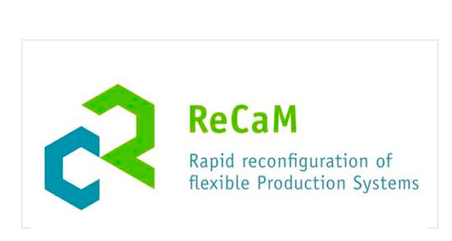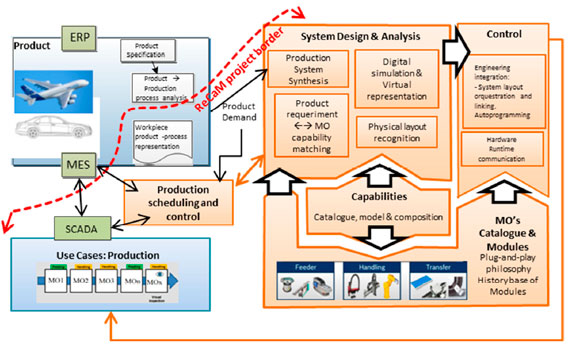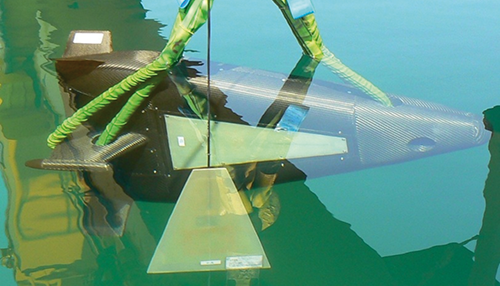ReCaM
Rapid Reconfiguration of Flexible Production Systems through Capability-based Adaptation, Autoconfiguration and Integrated tools for Production Planning interoperate with the MES and production monitoring systems


Manufacturing & materials - Process control

The requirements on production systems are continuously being shifted towards higher flexibility and adaptability. The ReCaM-project demonstrates at TRL 7 a set of integrated tools for the rapid and autonomous reconfiguration of agile production systems, both at operational as well as managerial levels, integrated with the existing production planning and scheduling tools (MES). This approach is based on intelligent plug-and-produce capable self-describing mechatronic objects, which are able to auto-program and self-adjust to the required task by utilizing parametric capabilities. Next generation flexible production systems and the proposed set of enabling ICT tools allow a rapid and cost-efficient reaction to dynamic market changes, also in small-lot production contexts, reducing the efforts needed to switch between product types and production quantities. The project grounds on existing defacto standards and specifications regarding reconfigurable system architectures, resource data models, control architectures and interfaces, and provides new specifications for the missing aspects. The ReCaM consortium sees strong involvement of SME’s to RTD and demonstration activities and two end-users from major EU sectors, thus enabling proper exploitation of the demonstrated results worldwide.
The integrated planning tool takes into consideration the energy consumption of the specific resources and try to minimize it by smart production scheduling, utilization of integrated operating-point switching of mechatronic objects, and reconfiguration. Thus, at least 5% reduction in energy consumption is anticipated. ReCaM-solutions are expected to allow increasing the amount of variants and decreasing the lot sizes by 50% in an economically feasible way. Also, at least 30% reduction in set-up and changeover times and costs are expected.
For two case-studies, EnginSoft integrates different performance evaluation software tools into an optimization engine driven by KPIs. The entire evaluation and optimization package is also integrated to interoperate with the MES and production monitoring systems.
Compañía Española de Sistemas Aeronáuticos | COSBERG S.P.A | EnginSoft Spa | Labein tecnalia | nxtControl GmbH - Control Software for Automation | Politecnico di Milano | Robert Bosch GmbH | Robótica, automatización y mantenimiento industrial S.A. | Tampere University of Technology
Funding Scheme HORIZON2020 - Innovation Action | Call identifier H2020-FoF-2015


36 months
November 2015 – November 2018
Robert BOSCH GmbH
Giovanni Borzi
9

Some of our competences in research and technology transfer

Research project
Production of components made of composite material, equipped with wireless communication systems capable of operating correctly in environments hostile to radio frequency.

Research project
The MAIPCO project concerns defect analysis in the production of complex composite components in the aeronautical sector and has developed new methodologies to reduce these defects.

Research project
Exergy International Srl is exploring innovative sealing systems to enhance ORC turbine efficiency, focusing on a novel brush seal design. This project aims to reduce leakage and improve energy recovery in waste heat applications.